How children’s television helps kids build resilience (and other life skills)
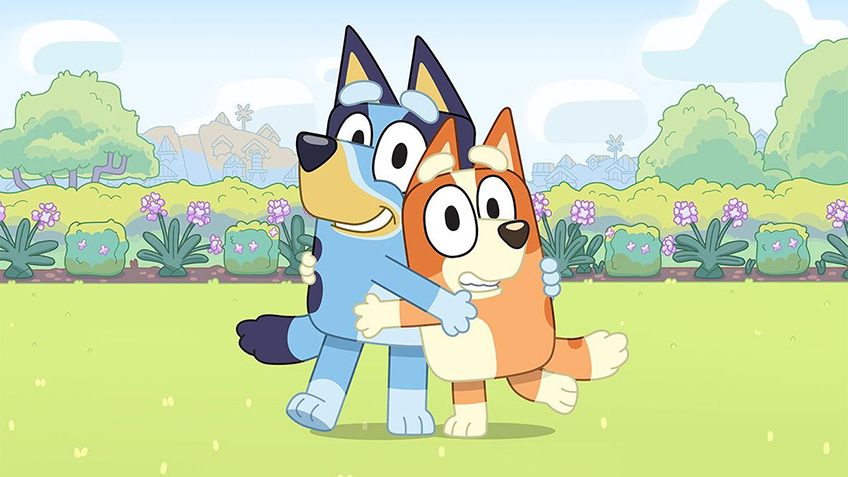
It’s revolutionised the world of creative play, introduced new terms and concepts into the everyday Australian vernacular (see: bush wee), and reportedly seen American children adopting an Aussie accent. And after watching 150 episodes of it, researchers have found that Bluey is also teaching young viewers how to be resilient.
Resilience – the ability to deal with challenges, adapt to setbacks and recover from difficulties – helps children manage stress, regulate their emotions, build better relationships and even perform better at school. It’s a crucial life skill, and research shows that early childhood interventions to enhance resilience can influence an individual’s wellbeing throughout their entire life span. Storytelling is an incredibly effective method for cultivating resilience in children.
A research team from CQ University Australia analysed every episode of Bluey – a total of 18 hours – and identified each moment where a character faced a challenge and demonstrated a resilient response. They found that out of 150 episodes, nearly half (48.7%) featured resilience as a primary or secondary theme, with central characters modelling behaviours such as problem-solving, emotional regulation, and persistence.
The research suggests that Bluey not only models resilient behaviours in children, but also demonstrates how caregivers can actively foster resilience through their interactions with their kids – so when co-viewing Bluey with their children, parents are also absorbing some powerful messages.
But Bluey isn’t the only children’s show teaching important social and emotional skills. Play School (ABC) features an “Oopsy Daisy” segment, which promotes resilience by encouraging children to learn from mistakes and “dust ourselves off and start all over again”. American animation Daniel Tiger’s Neighbourhood (PBS) uses structured social-emotional learning strategies, including memorable “strategy songs” to help children identify and regulate emotions, manage disappointment, and build persistence.
The following ACTF-supported content can help children of all ages to develop social and emotional skills, and prepare them for big life transitions like adolescence or starting school.
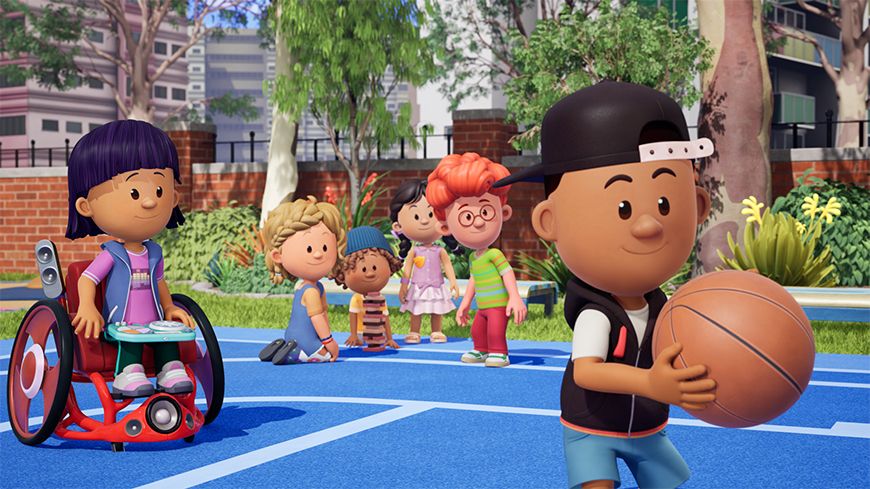
Eddie’s Lil’ Homies (NITV and Netflix)
Inspired by the children’s book series by AFL legend Eddie Betts, Eddie’s Lil’ Homies follows Eddie and his friends on their playground adventures as they navigate the fun and challenges of friendship. A fun, colourful and playful series, Eddie’s Lil’ Homies can help children from preschool age to develop personal and social skills like communication, collaboration and conflict resolution. The series utilises music to reinforce the message of the show with short, catchy raps which viewers can join in on.
Viewers will note that there are no adults in the series. Producer Eddie Betts says this was a conscious decision, designed to help children to develop independence and autonomy.
“The kids in Eddie’s Lil’ Homies work as a team – they show different styles of leadership to get the best outcome and to solve problems without any parents around,” he said. “We wanted kids to find that self-determination, to find that leadership, and work together with their friends to find solutions.”

Little J & Big Cuz (NITV and ABC)
Little J and Big Cuz are a couple of Indigenous Australian kids living with their Nanna and Old Dog on Country, busy with the ups and downs of the playground and the classroom.
This unique animated series was developed with the Australian Council for Educational Research (ACER) to support the transition to school for Indigenous children and their families, but the series is relevant to all kindergarten/pre-primary students, helping them to learn about the routines and expectations at primary school. In each episode, Little J, Big Cuz and their friends navigate typical school occurrences like show-and-tell, homework, sport and school performances. These everyday activities are then used to support viewers’ social and emotional development.
Case studies prepared by ACER revealed that using Little J and Big Cuz in educational settings assisted language development and supported students’ emotional development and wellbeing.
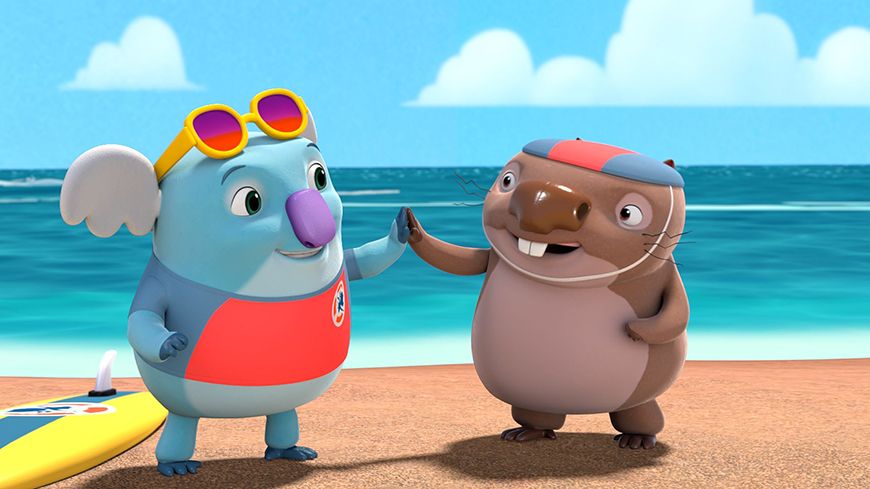
Kangaroo Beach (ABC)
Kangaroo Beach is a fun-filled series about the adventures of four young animal friends training as junior cadets with their lifeguard heroes. The series is fun, engaging and entertaining while also empowering viewers with an imperative message about water safety in every episode.
“We developed Kangaroo Beach in response to the fact that child mortality through drowning globally is one of the leading causes of child mortality,” said Executive Producer Patrick Edgerton. “In Australia we’re a beach-going nation, we’re a river-swimming, backyard pool-swimming nation too, so we wanted to create a show that was entertainment first and foremost, but also provided crucial water safety messages.”
The characters in Kangaroo Beach model skills such as how to keep calm and float, and identify rip currents, using catchy songs to reinforce safety messages that have been endorsed by Surf Educators International and Surf Life Saving Australia.
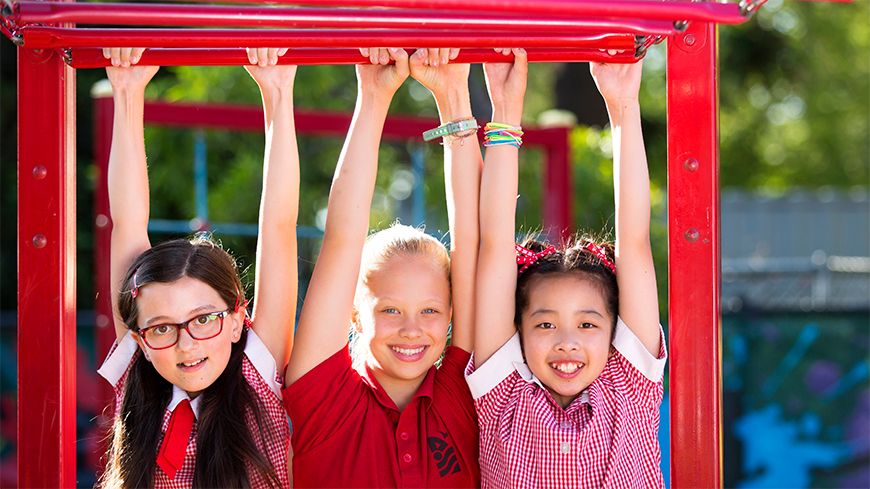
Little Lunch (ABC)
Little Lunch is a mockumentary-style comedy series where every episode takes place during the morning snack time, tackling the big issues in the playground, like who gets to go on the monkey bars? Using humour and relatable characters in a familiar school setting, the series explores many relevant themes for primary school-aged students, including ethical dilemmas, relationships, self-reflection and friendship.
Teacher Karsan Hutchinson uses Little Lunch to teach his students social and emotional skills including resilience, conflict resolution, empathy, and how to manage their own emotions.
“Each episode has a theme that can be explored as a class, potentially through a unit of work,” he said. “‘The Joke Competition’ deals with confidence, ‘The Body Bus’ delves into anxiety around perception and self-consciousness, jealousy is the theme of ‘The Relationship’ episode, and resilience is depicted in ‘The Corridor Outside 6E’.” For children nervous about the transition from primary to high school, ‘The Nightmare Before Graduation’ explores the mixed feelings students face when their primary schooling draws to a close.
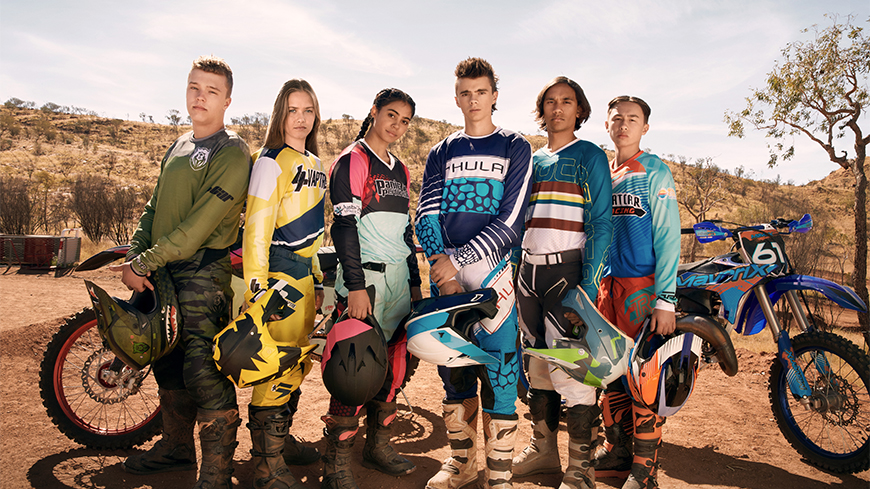
Maverix (ABC)
MaveriX tells the story of six young motocross riders who come together to form a team, aiming to make the national titles or crash out trying. It is a thrilling, high-adrenaline adventure series which demonstrates the grit, courage, and teamwork required to succeed in the competitive world of motocross racing.
MaveriX is a visually spectacular series showcasing daring stunts performed in a stunning outback setting – but co-creator, executive producer and director Isaac Elliott says it’s also a vehicle to teach the child audience about hard work, resilience and friendship.
“We live in quite a competitive education landscape and competitive sport landscape and competitive social media landscape. We spend a lot of our time comparing ourselves to other people in these spheres,” he said.
“What we show is that you can be competitive but you can also be friends. It doesn't stop you from caring about other people, which is really a really powerful thing for kids and teenagers to learn.”

Crazy Fun Park (ABC)
Crazy Fun Park is a comedy-horror series for teens and young adults which tells the story of two best friends, Chester and Mapplethorpe. After Mapplethorpe loses his life at an abandoned theme park, Chester discovers that his friend’s soul has stuck around, along with the ghosts of other teenagers who have died at the fun park.
The idea for the series came about through creator Nick Verso’s experience with death and grief as a teenager, which he didn’t have the tools to deal with. He wanted to create a show that dealt with grief and loss amongst the emotional chaos of adolescence, but without being morose. “I know that as a teenage boy I wouldn’t have wanted to tune into that,” he said. “I wanted it to be a fun, explosive celebration of life and spirit… a high energy party [where] the emotion gradually sneaks up on them, giving them tools to explore and process difficult feelings.”
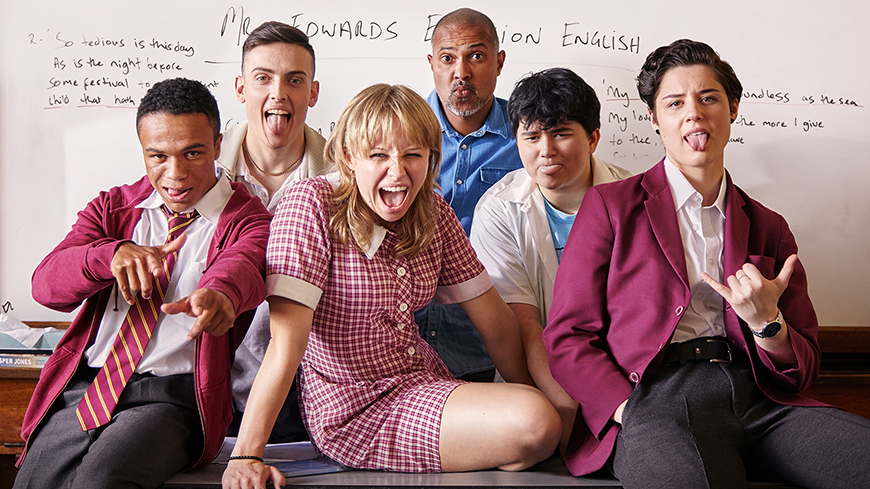
More Than This (ABC)
Aged 17 and navigating high school during Covid lockdowns, Australian actor Olivia Deeble created More Than This out of frustration at the lack of authentic on-screen teen stories. She and co-creator Luka Gracie collaborated with friends and peers to create a story that reflects the true contemporary Australian teenage experience.
The series tackles many important issues facing adolescents today, including bullying, self-harm, substance use, disordered eating and online harm. Adolescent psychologist Dr Michael Carr-Gregg says screen content like More Than This can help equip viewers with the tools to navigate these sorts of issues.
“Screen content that accurately and authentically reflects the modern-day adolescent experience has never been as important as it is right now as so many teenagers battle mental health issues,” he said. “There’s no magic formula to make these issues disappear – the only way to deal with them is to equip our children with the emotional resilience and practical strategies to tackle them when they appear.”